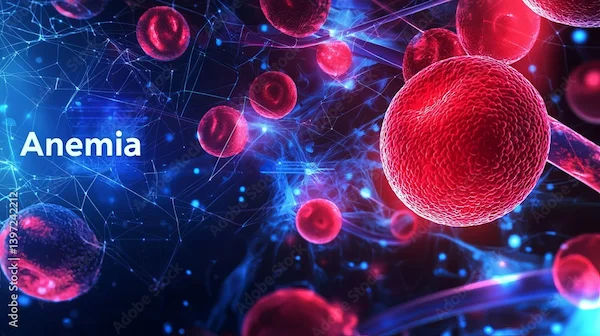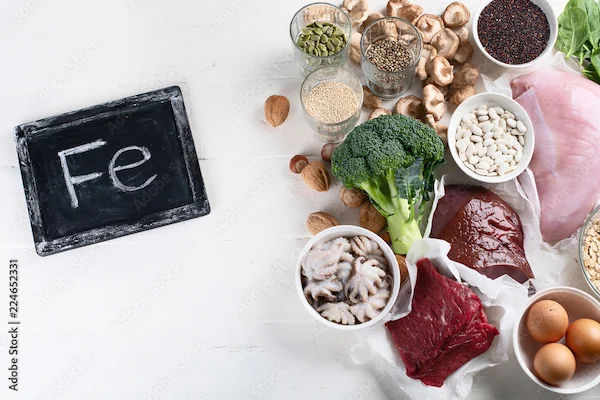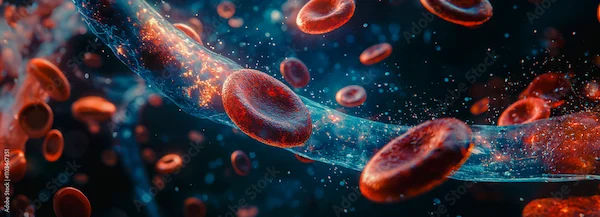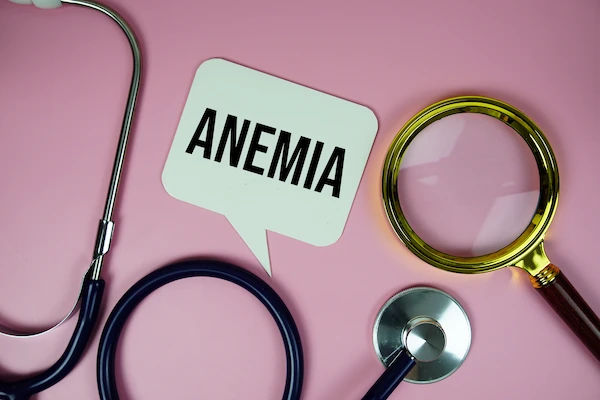Iron-Rich Foods for a Healthy Diet
Explore a variety of iron-rich foods essential for a healthy diet. Learn how to boost your iron intake naturally to support energy levels, immunity, and prevent iron deficiency.

Written by Dr. Rohinipriyanka Pondugula
Reviewed by Dr. Md Yusuf Shareef MBBS
Last updated on 13th Aug, 2025

Iron is an essential mineral that plays a crucial role in keeping our bodies healthy. It helps produce hemoglobin, a protein in red blood cells that carries oxygen from our lungs to the rest of the body. Without enough iron, we can feel tired, weak, and even develop anemia, a condition where the body lacks enough healthy red blood cells.
The good news is that eating iron-rich foods can help prevent deficiencies and keep your energy levels up. In this article, we’ll explore the best sources of iron, how to improve iron absorption, and simple dietary tips to maintain healthy iron levels.
Why Is Iron Important?
Iron is vital for:
- Energy production – Helps transport oxygen to muscles and organs.
- Brain function – Supports cognitive development and focus.
- Immune health – Strengthens the body’s defense against infections.
- Healthy pregnancy – Prevents complications like premature birth and low birth weight.
When iron levels are low, you may experience:
- Fatigue and weakness
- Pale skin
- Shortness of breath
- Dizziness
- Brittle nails
- Frequent infections
Consult a Top Nutritionist
Types of Iron in Food
There are two types of dietary iron:
1. Heme Iron – Found in animal-based foods (meat, fish, poultry) and is more easily absorbed by the body.
2. Non-Heme Iron – Found in plant-based foods (beans, lentils, spinach) and is less easily absorbed but still beneficial.
For optimal iron intake, it’s best to include both types in your diet.
Top Iron-Rich Foods
Below are a few top iron rich foods,
Animal-Based (Heme Iron) Sources
1. Red Meat – Beef, lamb, and liver are excellent sources.
2. Poultry – Chicken and turkey provide a good amount of iron.
3. Seafood – Oysters, clams, and fish like tuna and salmon are rich in iron.
4. Eggs – Especially egg yolks, which contain iron and other nutrients.
Plant-Based (Non-Heme Iron) Sources
1. Legumes – Lentils, chickpeas, kidney beans, and soybeans.
2. Leafy Greens – Spinach, kale, and Swiss chard.
3. Nuts & Seeds – Pumpkin seeds, sesame seeds, cashews, and almonds.
4. Whole Grains – Quinoa, fortified cereals, and brown rice.
5. Dried Fruits – Raisins, apricots, and prunes.
Tips to Boost Iron Absorption
Since non-heme iron is not as easily absorbed, pairing it with vitamin C-rich foods can help. Try these combinations:
- Spinach salad with lemon juice
- Lentil soup with tomatoes
- Oatmeal with strawberries
Avoid these when eating iron-rich foods:
- Tea & Coffee – Tannins in these drinks can block iron absorption.
- Calcium-rich foods – Dairy products can interfere if eaten at the same time.
Who Is at Risk of Iron Deficiency?
Some people are more likely to develop low iron levels, including:
- Pregnant women (due to increased blood volume)
- Women with heavy periods
- Vegetarians & vegans (if not eating enough iron-rich plants)
- Infants & children (rapid growth increases iron needs)
- People with chronic illnesses (such as celiac disease or ulcers)
Simple Ways to Add More Iron to Your Diet
Below are few simple ways to add more iron to your diet,
1. Start your day with iron-fortified cereals.
2. Snack on nuts and seeds instead of processed foods.
3. Cook in a cast-iron pan (it can increase iron content in food).
4. Add beans or lentils to soups and salads.
5. Include a side of vitamin C-rich fruits (oranges, bell peppers) with meals.
When to See a Doctor
If you experience symptoms like extreme fatigue, frequent dizziness, or pale skin, consult a doctor. A simple blood test can check your iron levels.
Need help with your diet or suspect an iron deficiency?
Book a consultation with a nutritionist or doctor through Apollo 24|7 to get personalized advice and testing.
Consult a Top Nutritionist
Conclusion
Eating a balanced diet with plenty of iron-rich foods is key to staying energetic and healthy. Whether you prefer animal-based or plant-based sources, there are plenty of delicious options to choose from. Pair them wisely, avoid absorption blockers, and listen to your body’s needs.
Consult a Top Nutritionist

Dr. Bhukya Pavan Kalyan
General Physician
5 Years • MBBS DNB Paediatrics
Bengaluru
PRESTIGE SHANTHINIKETAN - SOCIETY CLINIC, Bengaluru

Neelanjana J
clinical nutrition
3 Years • Bsc., Msc. Nutrition and Dietetics.
Bengaluru
Apollo Clinic, JP nagar, Bengaluru

Ms. Soma Saha
clinical nutrition
17 Years • B.Sc. - Home Science (Food & Nutrition), M.Sc. - Home Science (Food & Nutrition)
Kolkata
Dr Utsa Basu Clinic, Kolkata
(25+ Patients)

Dr. Ramalinga Reddy
General Physician
5 Years • MBBS MD General medicine
Bengaluru
PRESTIGE SHANTHINIKETAN - SOCIETY CLINIC, Bengaluru
Dr Ganavi K B
clinical nutrition
1 Years • BNYS
Bengaluru
Apollo One Electronic City, Bengaluru
Consult a Top Nutritionist

Dr. Bhukya Pavan Kalyan
General Physician
5 Years • MBBS DNB Paediatrics
Bengaluru
PRESTIGE SHANTHINIKETAN - SOCIETY CLINIC, Bengaluru

Neelanjana J
clinical nutrition
3 Years • Bsc., Msc. Nutrition and Dietetics.
Bengaluru
Apollo Clinic, JP nagar, Bengaluru

Ms. Soma Saha
clinical nutrition
17 Years • B.Sc. - Home Science (Food & Nutrition), M.Sc. - Home Science (Food & Nutrition)
Kolkata
Dr Utsa Basu Clinic, Kolkata
(25+ Patients)

Dr. Ramalinga Reddy
General Physician
5 Years • MBBS MD General medicine
Bengaluru
PRESTIGE SHANTHINIKETAN - SOCIETY CLINIC, Bengaluru
Dr Ganavi K B
clinical nutrition
1 Years • BNYS
Bengaluru
Apollo One Electronic City, Bengaluru
.webp)



